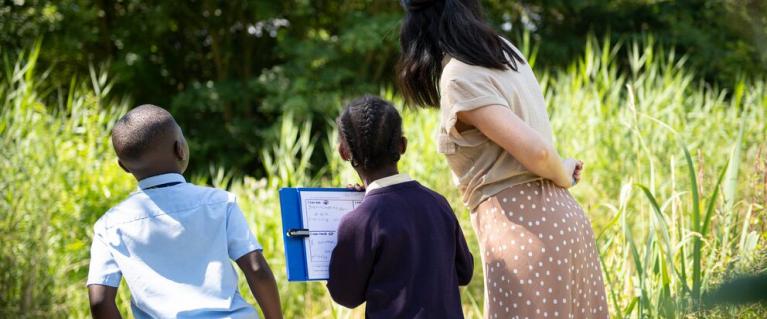
Programme evaluation
The independent evaluations of Stepping Stones (2016-17 and 2018-20) show that the programme can help vulnerable young people as they transition to and settle into secondary school.
They include evidence of benefits in terms of behaviour, attendance and attainment for Year 7 students, as well as wider benefits for Year 10 mentors, teachers, parents and the school community.
Download the programme evaluation report or read on for key findings.
Stepping Stones - Evaluation
The evaluation of the Stepping Stones programme (2018-20) found that it had a positive impact on the behaviour, attendance and attainment of vulnerable young people in Year 7, especially for pupils with Special Educational Needs and Pupil Premium status.
This was consistent with and built on the findings of the pilot evaluation (2016-17).
Academic progress
- Overall, there was a 5.1% improvement in academic progress in Maths compared to previous pupils.
- The programme appears to have had a greater impact on boys than girls. For boys in Year 7, progress in English for both cohorts was also better than the historical comparison group.
- There were examples of where peer mentors helped pupils manage their approach to school and homework.
- Improved academic progress was felt to be supported by improved behaviour and attendance.
Behaviour
- Overall, there was an estimated 1.1% fall in exclusions compared to previous pupils. This was mainly due to improvements among SEN pupils.
- Stepping Stones supported shy or socially anxious young people through pre-term summer school activities that helped improve their social confidence before the start of the school year.
- Peer mentoring provided positive role models and a relatable source of support that increased self-esteem and confidence.
- Stepping Stones lessons helped young people who struggled to control their behaviour develop their self-confidence and ability to deal positively with a range of situations.
Attendance
- Overall, there was an estimated 5.5% increase in attendance compared to compared to pupils in previous years.
- Summer schools helped directly address many of the fears that socially anxious or shy pupils had about secondary school, which supported attendance early in the school year.
- Free ‘breakfast clubs’ and community also supported attendance among more vulnerable groups of young people.
- Impact on peer mentors
- The mentor role can help motivate struggling pupils to improve their own behaviour and development.
- The status and responsibilities of the role helped mentors to develop maturity, self-confidence and communication skills.
Wider programme impacts
- The programme reduced parental anxiety around their child’s transition.
- The programme provided teachers with a clear focal point around which schools organised transition activities, which helped to systematise transitions support.
- The programme contributed to a culture shift in school communities, characterised by more positive interactions between pupils in different Key Stage groups and year groups.
Economic assessment
- The programme more than pays for itself in terms of the social value it generates.
- The Return on Investment is 198% for public services and 154% for education providers over a 12-year period.
- The average cost per pupil is estimated at £372.
Evaluation of the pilot programme
The evaluation of the Stepping Stones pilot was completed in 2016-17. It can be downloaded here:
Need a document on this page in an accessible format?
If you use assistive technology (such as a screen reader) and need a version of a PDF or other document on this page in a more accessible format, please get in touch via our online form and tell us which format you need.
It will also help us if you tell us which assistive technology you use. We’ll consider your request and get back to you in 5 working days.